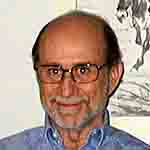2010 Award for Best Poetry Book won by Tony Zurlo
 PEACE CORPS WRITERS is pleased to announce that The Mind Dancing by Tony Zurlo (Nigeria 1964–66) has won the 2010 Award for the Outstanding Poetry Book published by a Peace Corps writer during 2009. Zurlo will receive a framed certificate and a prize of $200.
PEACE CORPS WRITERS is pleased to announce that The Mind Dancing by Tony Zurlo (Nigeria 1964–66) has won the 2010 Award for the Outstanding Poetry Book published by a Peace Corps writer during 2009. Zurlo will receive a framed certificate and a prize of $200.
After many years of teaching history and writing in public schools in Long Island, and in colleges (Pennsylvania, Tennessee, Ohio, Oklahoma), Tony taught literature and writing at a teachers’ university in the Peoples Republic of China. The year in China was the second life-changing experience for Tony. Studying, discovering, and appreciating Chinese culture and the people is the subject of The Mind Dancing.
Not just a collection of poems, The Mind Dancing traces his journey of self-discovery from his experiences in China. Part One, “Roots,” establishes the foundations of Chinese culture indispensable for personal growth. Part Two, “Discovery,” reveals spiritual development from experiencing the environment and people of China. Part Three, “Separation,” depicts the sadness of separation, but joyfulness of preserving bonds with Chinese friends and culture. 2008 Texas Poet Laureate Larry D. Thomas writes: “These poems, beautifully illustrated with Chinese characters by Vivian Lu, capture the very essence of China.”
•
As a PCV Tony taught Nigerian history and English in secondary schools in Zaria and Yola, Nigeria. The experience was very much an initiation into adulthood for him as there was great hostility in the country between the North and South, and riots and other conflicts led to the Biafran War. Those were quite tumultuous times for Tony, and were suspenseful and emotionally exhausting. His first chapbook of poems, Naked Against the Sky, was based on his Peace Corps experiences.
After the Peace Corps, Tony served in the U.S. Army from 1967 to 1970. The following is an excerpt from “Becoming a Man in the Sixties: The Peace Corps and the Army” that he wrote for a series of articles for PeaceCorpsWriters.org (January 2005 issue) entitled “War and the Peace Corps.” (The piece was also published in Writers Against War, Winter 2005):
On a dry, sunny day in October 1966, I stepped out of Barclay’s Bank and ran abruptly into a rag-tag mob of young men and teenage boys screaming with hate and chasing a middle-aged Igbo man . . ..
I ran over to the Igbo man and found him unconscious; I could see only the whites of his eyes. When I tried to lift him, I noticed fresh blood oozing from the crown of his head. The leader of the mob shouted out to me, “Batuuree [White man], what you want? This man be your brother?”
I shouted something I’ve long forgotten, and the mob’s leader answered, “Go away, Batuuree. This is our business.”
While I was trying to get help from onlookers to get the man to the hospital, the mob edged closer. Some held rocks and clubs; others swung machetes. I realized that they were not as disorganized as they looked. I also matured a hundred years in those five or ten minutes. I knew I could not save the man. What I could do, I realized, was to look for some Igbo friends in other parts of the town and drive them to safety.
For about three hours, I raced around on my Honda 50 looking for friends. I only managed to transport three people to the airport so they could escape by plane to the northern capital of Kano. One of those I took to the airport was Israel, the young Igbo who worked for me at my house. Unfortunately, the newspaper headlines the following day read that Northern army troops had mounted planes at the Kano airport and killed all Igbo passengers.
My own three years in the Army [serving in Germany], after my experience in Nigeria, seemed almost a mockery of the suffering and agony I saw in Nigeria while teaching with the Peace Corps. Although I know that my experience does not rival the heroism and tragedy of Vietnam, the life lessons are similar. The Nigerian tragedy taught me that I couldn’t change the world. For the first time in my life I began to understand that I am only accountable to my own conscience. And becoming an adult means living with the anguish of our personal limitations and failures.
(A short story based on this event, “Faces of Fear,” appeared in Network Africa (June 1985) and in Okike 25 (1985).
 Tony lives in Arlington, TX and teaches writing, American literature, and non-Western literature and culture at Tarrant County College Southeast. He is currently working on a book of poems about the “sweet and sour” emotional journey of growing old tentatively titled Water, Heart, and Sun, the Chinese characters for Eternity.
Tony lives in Arlington, TX and teaches writing, American literature, and non-Western literature and culture at Tarrant County College Southeast. He is currently working on a book of poems about the “sweet and sour” emotional journey of growing old tentatively titled Water, Heart, and Sun, the Chinese characters for Eternity.
To order The Mind Dancing from Amazon, click on the book cover or the bold book title — and Peace Corps Worldwide, an Amazon Associate, will receive a small remittance that helps support these awards.
No comments yet.
Add your comment